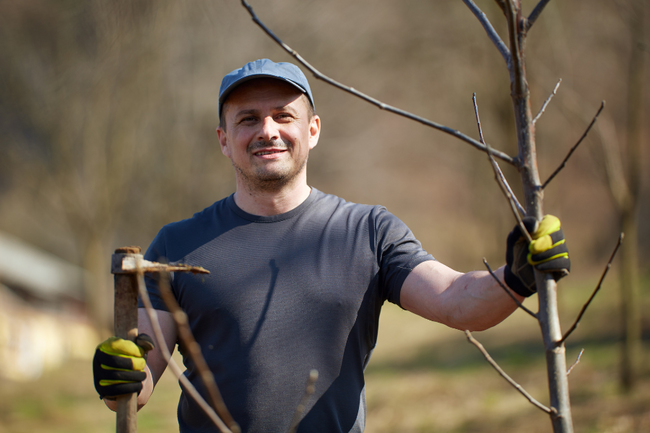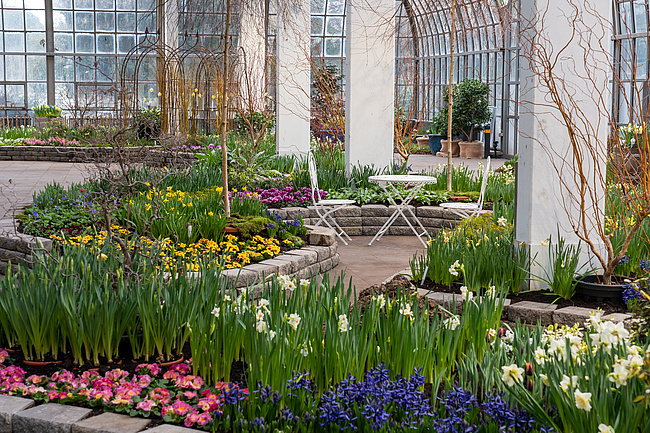The Frankfurt Cannabis Survey
Drogen department publishes results of a representative survey of the Frankfurt population on the subject of cannabis
Background for the survey are the far-reaching changes planned by the federal government in relation to the handling of cannabis for recreational use. The first step envisaged in the federal government's April key issues paper is decriminalization. Home cultivation and membership in cultivation associations are to be made possible. An initial draft law has now been presented for this purpose. The second step is to test a commercial supply chain for cannabis in selected regions. The city of Frankfurt has already announced that it will apply as a model region together with the city of Offenbach.
"Many questions about the design of the new regulations are still open," emphasizes Dr. Artur Schroers, the head of the drug department. "But regardless of the actual implementation, the coming changes will have an impact on a major city like Frankfurt am Main. That's why it was important for us to obtain robust data on the attitudes, expectations and needs of the city's population around the topic of cannabis."
Actually, the study was supposed to be published already in June. Due to an attempt to manipulate the study results, the date was delayed. 350 very elaborately falsified questionnaires had been sent in likewise falsified return envelopes to the evaluating Institute for Interdisciplinary Addiction and Drug Research (ISD) in Hamburg. Through an extensive review of all received questionnaires, all fakes could be detected beyond doubt and removed from the data set.
High approval ratings for legalization
10,000 randomly selected adults in Frankfurt were contacted. There was an option for postal response and online participation. The net response rate was 27.3 percent. This is a good figure for a postal survey of this kind. Schroers is pleased about this: "The topic of cannabis obviously meets with great interest among the city's population."
The majority of Frankfurt residents are in favor of legalizing cannabis: 65.8 percent of those surveyed are in favor of the controlled distribution of cannabis for consumption purposes to adults without restrictions or rather. This applies slightly more to men (70.6 percent) than to women (60.5 percent). Approval also increases with the level of educational attainment. Respondents without a high school diploma or with a lower secondary school diploma are 56.1 percent more likely or absolutely in favor of legalization, while 62.2 percent of respondents with a Mittlerer Reife and 70.1 percent of respondents with a (technical) high school diploma are in favor. Strong differences are also apparent in terms of age: approval tends to be stronger among younger respondents: While about three out of four respondents (78.2 percent) among 25- to 34-year-olds absolutely or rather agree with legalization, the figure for 65- to 79-year-olds is only slightly more than half (52.1 percent).
Help system meets with high acceptance, but low awareness
Of great importance to Schroers are the respondents' assessments of the help system. 87.6 percent of respondents would certainly or probably recommend that a person in their circle of friends or family with problematic cannabis use seek help facilities. And as many as 92.9 percent would certainly or probably make use of drug and addiction counseling centers for themselves or recommend them to another person in the case of problematic cannabis use. Schroers concludes from this: "Frankfurt's citizens trust the existing help system and especially the drug and addiction counseling centers."
However, the high acceptance of the help system contrasts with the low level of awareness: More than half of the respondents (54.9 percent) definitely or probably do not know where they could get help for themselves or others with problematic cannabis use in Frankfurt. This mainly concerns people with little formal education: Two out of three respondents (63.8 percent) without a high school diploma or with a lower secondary school diploma say they definitely or probably do not know where they could turn for help with problematic cannabis use in Frankfurt. For the head of the drug department, this results in the following: "The level of awareness of the offers of help must be improved."
Interestingly, almost two out of three people (63.6 percent) also state that they would certainly or probably want to take advantage of a consultation at a cannabis sales outlet as a source of information if legalization were to take place. The numbers are even higher among groups that would be particularly affected, such as those with cannabis use in the past 30 days, young adults up to age 25, and those who would be using cannabis for the first time or for the first time in a long time if legalization were to occur. For Schroers, these data underscore the high demands that would have to be placed on dispensaries in terms of networking with the drug and addiction support system and staff qualifications.
Prevention and youth protection are important, as are the needs of users
"For me, paying attention to prevention and youth protection is very important," Schroers explains. "I am glad that I am obviously not alone in this in Frankfurt." A clear majority of 91.3 percent of respondents consider school-based prevention about the risks of cannabis use from grade 7 onward to be very or rather useful if cannabis is legalized. Almost as high is the proportion (91 percent) of people who would like to see further training for family doctors. And a very large majority is also in favor of cannabis only being dispensed to adults: 90.6 percent absolutely or somewhat agree with this proposed regulation.
Numerous goals of legalization, such as pushing back the black market or reducing health damage from contaminated cannabis, can only be achieved if consumers who have so far obtained cannabis illegally are won over to what will then be a legal market. Many details of the previous considerations, in particular home cultivation, cannabis social clubs and specialized cannabis outlets, meet with high approval ratings among this group of people. On the other hand, a majority (53.9 percent) of those who have consumed cannabis in the last 30 days are (absolutely or rather) opposed to a THC limit. Schroers concludes, "A blanket THC upper limit does not seem reasonable against the background of these considerations."
No massive increase in cannabis use to be expected
. A frequently expressed concern regarding cannabis legalization relates to a resulting massive increase in use ("dam-burst scenario"). The data available here do not suggest such a dramatic increase. Three out of four respondents would not change their current consumption behavior: 61 percent state that they would continue not to use cannabis even after legalization. 11.7 percent would maintain their current cannabis consumption. 13.5 percent cannot yet assess whether they will change their behavior. Almost as many respondents would use cannabis for the first time (3.6 percent) or again (8.2 percent) after a long period without use. 1.4 percent of the respondents estimate that they will use more cannabis than before. After all, 0.6 percent think it will be less. This self-assessment of the Frankfurt population is consistent with empirical data from countries that have already gained experience with cannabis legalization. Reviews suggest a rather moderate increase in use among adults in the U.S. and Canada.
For the head of the drug unit, it is important to also look at the positive effects of decriminalization and legalization. Those who are already using would be particularly affected by a number of improvements, he is convinced: "They no longer have to fear prosecution. Quality-assured products mean they are exposed to fewer health risks. And they no longer inevitably come into contact with the black market."
Schroers also hopes that legalization will remove the taboo from the subject: "This will allow more open and honest communication about cannabis. This will prove helpful both for prevention among young people and for health protection."
The full final report and an abridged version of it are available on the Drug Unit's homepage at drogenreferat.stadt-frankfurt.de for download and are also attached to this message.













